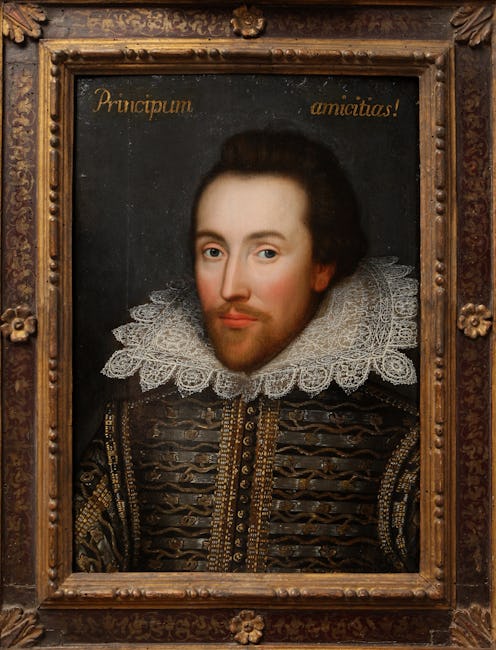Books
Did Experts Just Uncover A New Shakespeare Play?
Every few months, you hear about a newly discovered short story or novel or play by a famous writer, and everyone gets rightly excited. But when the writer in question is not a 20th century author but rather The Bard himself, that's another matter entirely. And lo and behold, researchers now believe they have identified a long-lost Shakespeare play. So, fellow Shakespeare fangirls, now would be the time to get extra super freaking excited!
So, what is this play? Well, unfortunately we still don't have the original William Shakespeare manuscript itself, but researchers from the University of Texas say that their research "strongly" suggests that the play Double Falsehoods by Lewis Theobald was adapted from several versions of a lost Shakespeare play called Cardeno, which The Bard co-wrote with his friend John Fletcher. Researchers used computer software to examine the language of the play and compare it to other writings of Theobald, Fletcher, and of course Shakespeare. And they found that the language in the play is extremely consistent with Shakespeare having co-written it.
"The match between the 'Double Falsehood' play and Shakespeare was a landslide. It was shockingly clear," said Ryan L. Boyd, one of the two researchers behind the paper, which was published in the journal Psychological Science. "There's very little wiggle room to interpret the numbers any differently."
Although we cannot say for sure that the play we have today is indeed entirely the work of Shakspeare, Boyd and his coauthor James W. Pennebaker say that they believe that much of the play — including the entire first half — was indeed written by William Shakespeare.
"We're certainly not suggesting that Theobald didn't make edits," Boyd told CNN. "But he clearly did not write it." In fact, based on their analysis, which included everything from use of pronouns to use of words relating to things like emotion or religion, it is highly unlikely Theobald wrote it.
Double Falsehoods has been a subject of debate in the academic community for some time now. Lewis Theobald, to whom it is commonly attributed today, said that he adapted the play from three manuscripts, all written by Shakespeare, but many people believed those claims to be a hoax. But if the latest findings are to believed, Theobald was telling the truth after all.
What is this play even about? Well, it's based on the "Cardeno" section of Don Quixote, and it involves romance, sword fights, and an apparently unhappy ending. Which all sounds very Shakespeare. However, it most likely has been substantially reworked. It's also much shorter than most Shakespeare plays, and experts who believe the play was originally Shakespeare's think that Theobald most likely cut out sections he didn't like or didn't consider appropriate. Meaning that we'll still probably never have access to Shakespeare's actual version, assuming the play was his to begin with.
It isn't likely that this latest evidence will convince everyone, but still, it seems more and more likely that Double Falsehoods really is a long-lost Shakespeare play. And that is definitely not something you get to hear every day.
Image: Giphy
